The Best Sustainable Women’s Fashion Brands to Support for Earth Month and Beyond

If you purchase an independently reviewed product or service through a link on our website, The Hollywood Reporter may receive an affiliate commission.
This story is part of The Hollywood Reporter’s 2023 Sustainability Issue. Click here for more eco-conscious shopping tips from Hollywood.
More from The Hollywood Reporter
Fashion trends come and go, but one thing that is always in style is sustainability. The fashion industry is notorious for taking a major toll on the environment and factory workers, as seen in the documentary The True Cost. Shopping for some of the best sustainable fashion brands might not solve the fast fashion problem, but when it’s time to replace worn-out pieces in your wardrobe, opting for more ethical and eco-conscious alternatives can help.
Ethical fashion comes in many forms, including being mindful about water usage, hazardous chemicals, short lifecycle (such as fast fashion, which is made to be tossed once a trend is over), waste (this is where mending a hole in your favorite sweater or resoling your shoes comes in) and favoring organic farming methods that don’t use harmful pesticides and require less water.
Plenty of celebrities have proved their dedication to sustainable fashion, including Emma Watson, who previously collaborated with the eco-conscious brand People Tree and started a separate Instagram account to share her sustainable high fashion looks to prove that everything she wears can be ethically sourced. Cate Blanchett re-wears red carpet looks or opts for upcycled or archive pieces. And Hollywood is highlighting earth-friendlier lifestyles, as seen in Marry Me (where Owen Wilson and J. Lo use stainless steel water bottles and lunch boxes) and Ted Lasso.
To help you approach your wardrobe with the planet’s best interests in mind, we’ve rounded up the best sustainable fashion brands for women and the best spring picks from each. From companies that use fabrics such as Tencel (made from renewable and sustainably harvested wood pulp) and organic cotton to the best Certified B Corporations that operate with a business model that pays fair wages, check out some of the coolest conscious womenswear labels in honor of Earth Month.
1. Pangaia
Calling itself a “direct-to-consumer material sciences company,” Pangaia says that science, purpose and design are its top three pillars. The B Corporation brand turns bacteria into dyes, transforms carbon emissions into sunglass lenses, employs unique treatments (such as biocarbon wicking from microalgae) and uses a range of bio- and plant-based fibers (such as its proprietary FLWRDWN, C-FIBER, organic cotton and others) and other innovative materials that are biodegradable or recyclable.
They’re upfront about their use of synthetics in their technical fabrics (the brand points out that recycled polyester isn’t necessarily recyclable itself) and they use recycled pre- and post-consumer scraps to avoid further waste. Pangaia offers a range of women, men and kids apparel and accessories, including basics and denim. Jeans are made of a plant-based organic cotton blend that uses pesticide-free, rain-fed hemp that’s dyed with natural indigo.
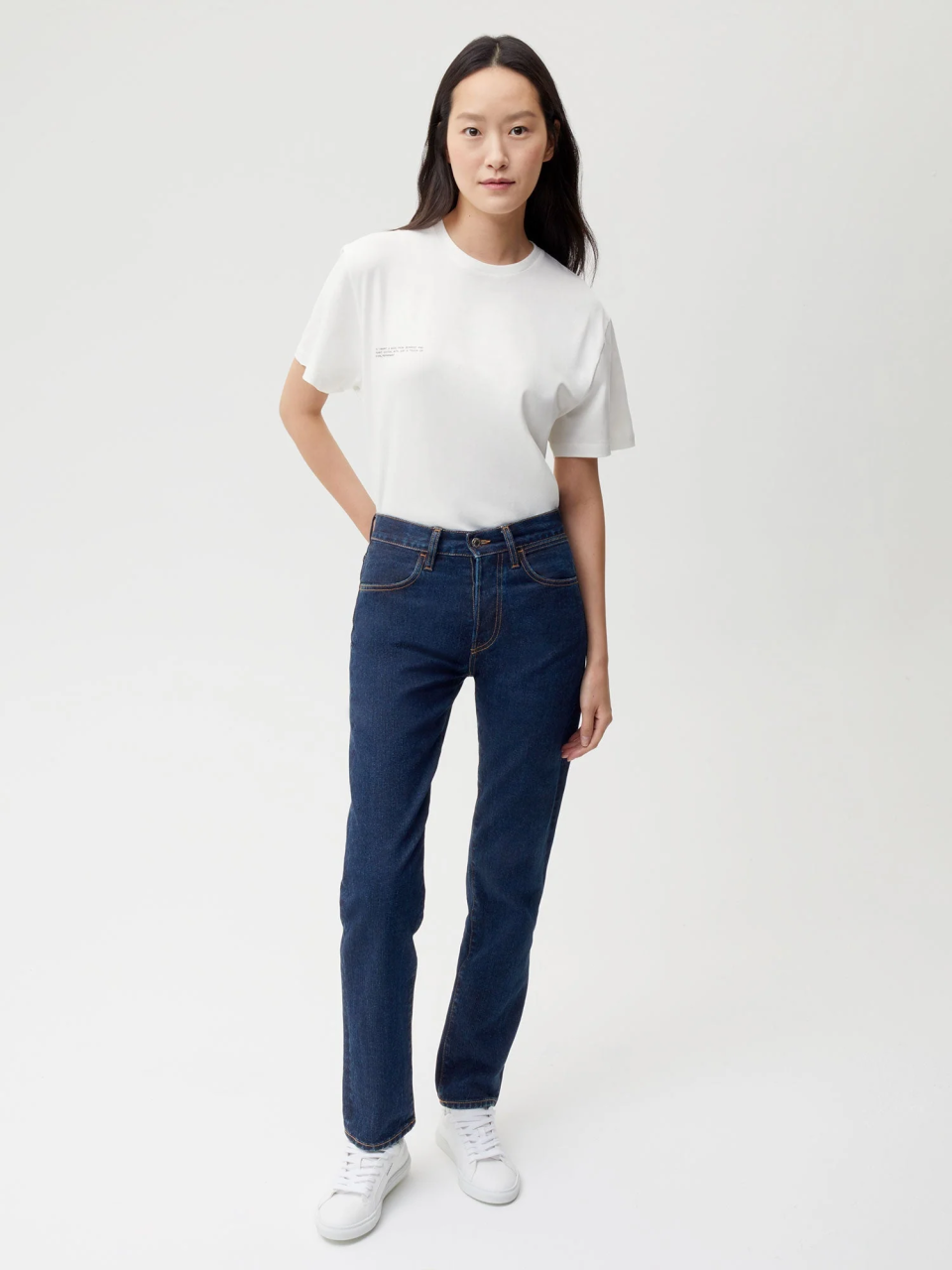
Pangaia Women’s Nettle Straight-Leg Jeans
2. Chloé
Chloé became the first luxury fashion house to earn B Corp. certification in October 2021, and creative director Gabriela Hearst recently won the Sage recognition from the Green Carpet Fashion Awards for her efforts in reducing the brand’s carbon footprint and pioneering the use of upcycled and recycled fabrics and materials.
To help usher in systemic change, the brand has partnered with social and environmental nonprofits and industry initiatives including the Fashion Pact, Ellen MacArthur Foundation, World Fair Trade Organization, B Corp Movement and more.
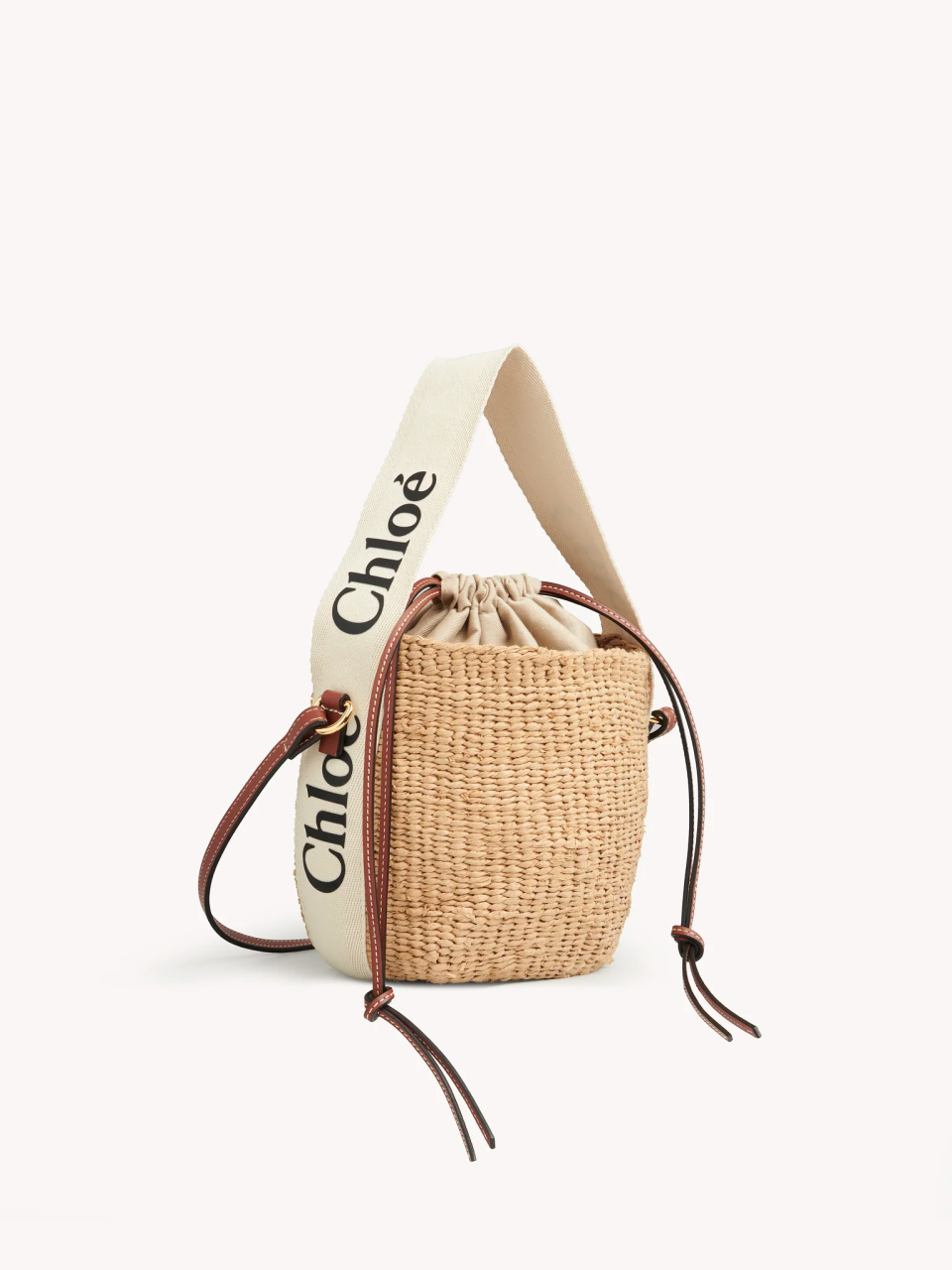
Chloé Fair-Trade Small Woody Basket
3. Pact
Whether you’re looking to outfit your entire family, bedroom or bathroom, Pact is a great option for earth-friendly womenswear, menswear and home textiles. The Boulder-based basics brand partners with Fair Trade Certified factories to make its sustainable organic cotton products, and it offsets its carbon footprint for every single product. What’s more, Pact customers receive a Give Back box with every order so they can donate their old clothing to nonprofits, and the company uses minimal and recyclable packaging.
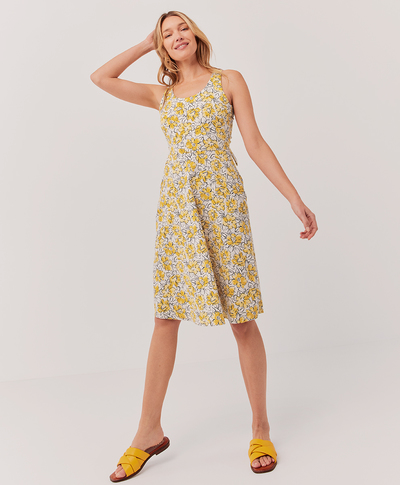
Pact Fit and Flare Tie-Back Dress
4. Stella McCartney
No sustainability-focused list would be complete without Stella McCartney, who has been advocating for vegan alternatives since she launched her luxury fashion brand in 2001. The designer uses organic cotton, sustainable fibers, regenerated cashmere and recycled polyester in her apparel and accessories.
Her pieces are available at a range of retailers (including Net-A-Porter, Farfetch, Neiman Marcus and many others), and she was the first designer to team up with a sports brand when she brought her sleek and eco-conscious spin to her Adidas partnership starting in 2005. In 2018, she designed the activewear company’s first-ever vegan Stan Smith shoes, and she also established a nonprofit organization that same year to advocate for sustainability and breast cancer awareness.
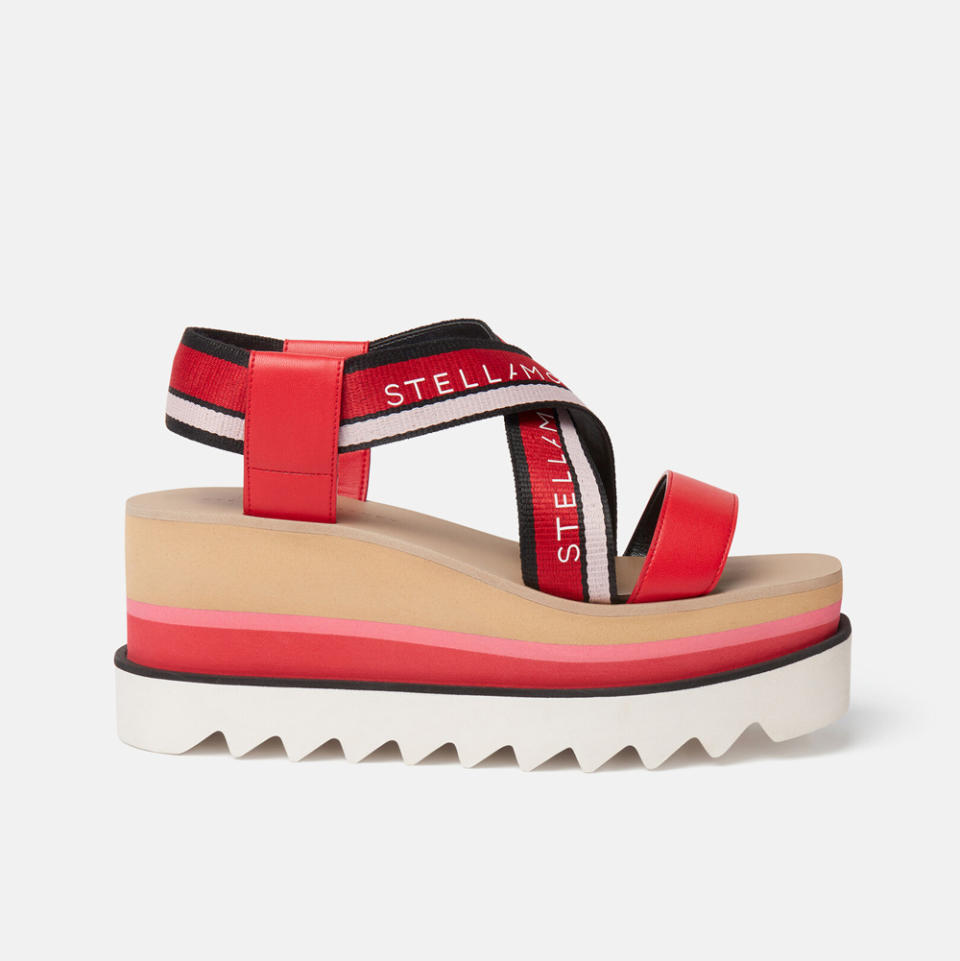
Stella McCartney Sneak-Elyse Striped Platform Sandals
5. Reformation
When Reformation burst into the fashion scene in 2009, it made sustainable fashion sexy, thanks to its use of deadstock fabrics. In addition to expanding its fabrics to organic cotton and denim (which uses less water than traditional processes) and renewable natural fibers, Ref rates its materials so that shoppers are aware of every environmental impact of their purchases.
Their eco mission has never wavered and they continue to invest in green building infrastructure to reduce their energy, water and waste usage. The 100 percent carbon neutral company brings that ethos into their stores as well by featuring LED fixtures and recycled fabric insulation, and completely offset their store builds. Transparency is a cornerstone of the brand, which is why it shares its quarterly and annual sustainability reports with the public.
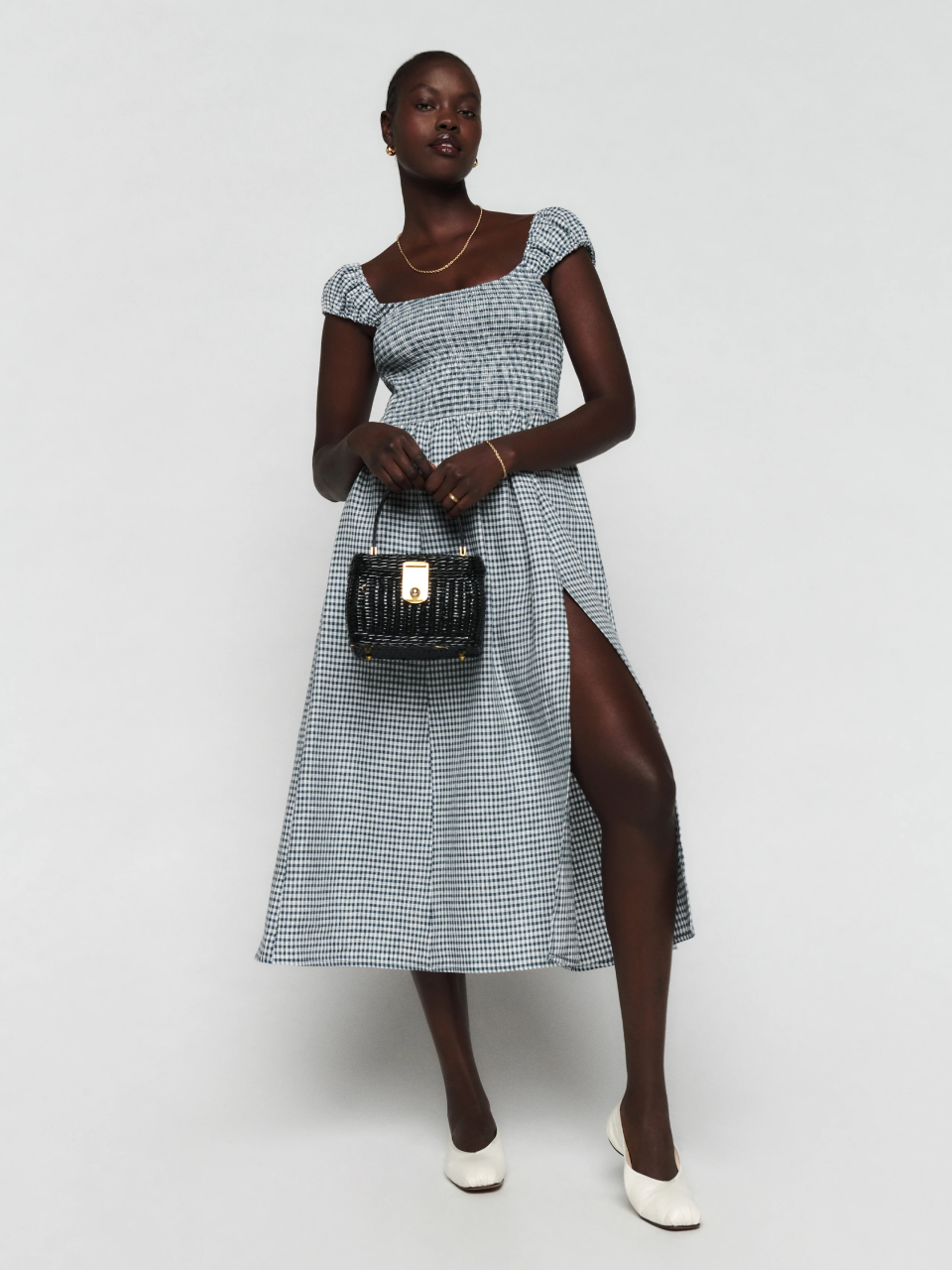
Reformation Tavi Linen Dress
6. Girlfriend Collective
Girlfriend Collective might be best known for launching its brand with free leggings made of recycled plastic water bottles, and it’s among the best sustainable brands for those looking for activewear made from recycled materials. Its compressive leggings and bras are made from 79 percent recycled polyester and 21 percent spandex (which translates to 11 to 25 post-consumer plastic bottles), while recycled fishnets and other ocean waste make up its Econyl yarn. Girlfriend’s tees and tanks are made of recycled and organic cotton and cupro, a fabric spun from cotton waste. And it ships its products in 100 percent recycled and recyclable packaging.
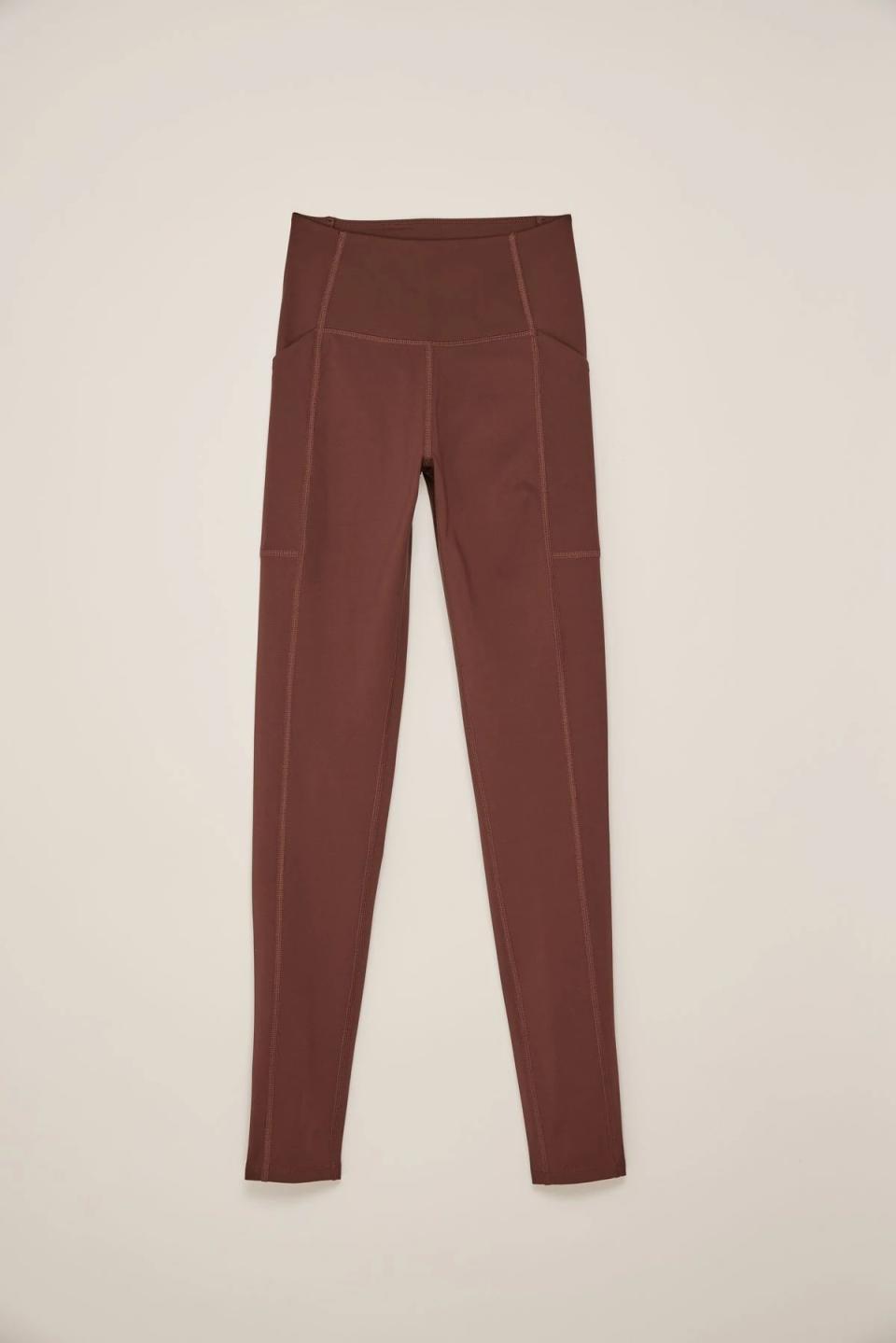
Girlfriend Collective Earth Compressive Pocket Legging
7. Noize
Canadian fashion label Noize is PETA-approved, and all of its products are vegan, cruelty-free and manufactured with sustainability-focused practices. Known for its outerwear, the company uses faux fur, vegan leather, down alternatives, organic cotton and recycled materials and textiles such as econyl and Repreve fill. Noize also developed an algae-based, plastic-free insole in its shoes, helping to reduce the carbon footprint of its footwear.
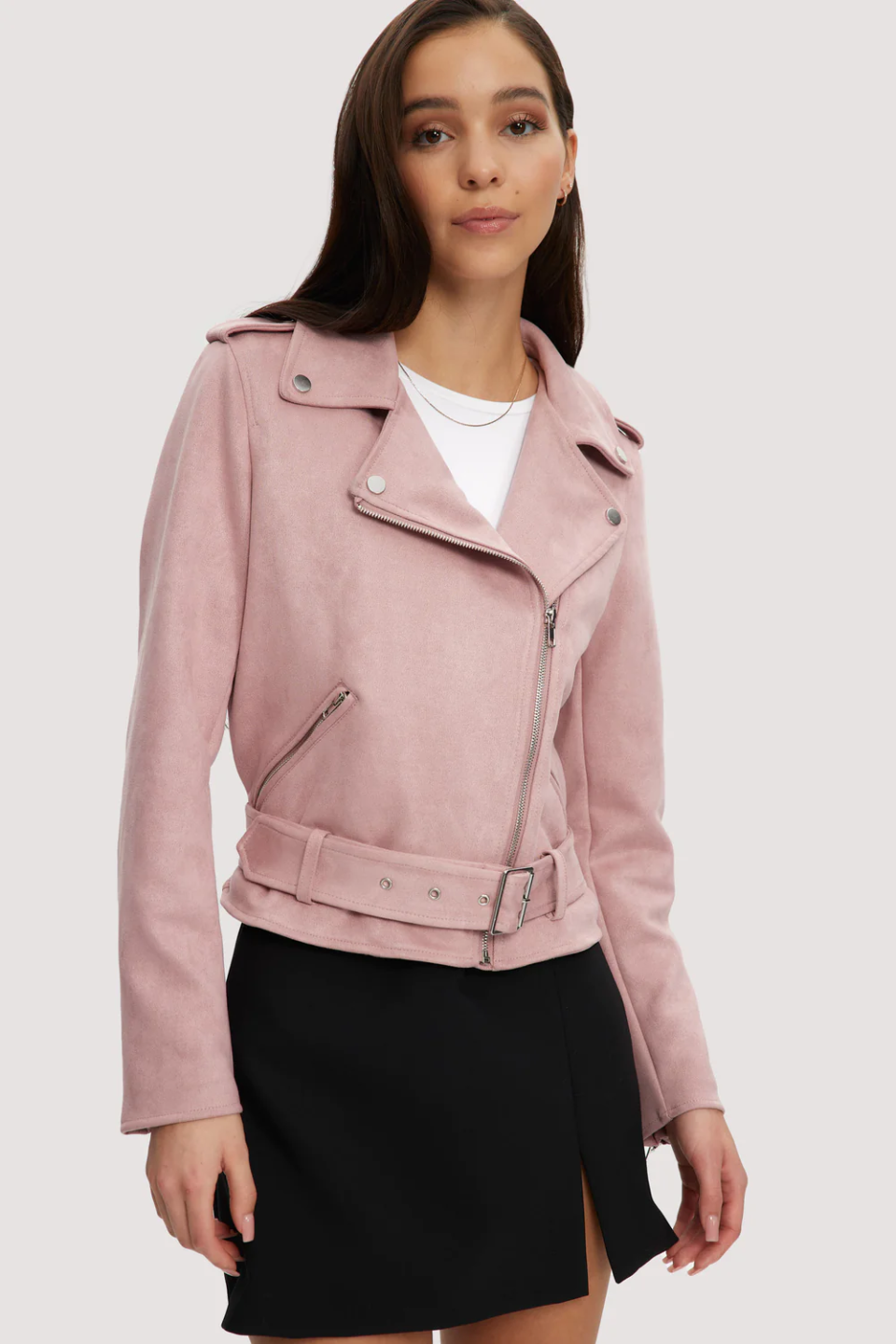
Noize Zadie Cropped Vegan Suede Jacket
8. Ganni
Much of the Scandi style craze can be attributed to cool-girl label Ganni. Though the brand doesn’t identify as a sustainable fashion brand, it says it’s committed to “becoming the most responsible version” of itself and shares annual reports on its social and environmental impacts. In 2019 they signed the New Plastics Economy Global Commitment with the Ellen MacArthur Foundation to solidify their commitment to reducing their plastic waste, and they work with RePack to save up to 80 percent of carbon emissions (compared to single-use waste) with its reusable and returnable repackaging.
Ganni is working to switch its three key fabrics to certified alternatives: organic cotton, recycled polyester and Lenzing Ecovero viscose. They have a dedicated responsible collection, including this cotton poplin dress that is green in every way. Made from 100 percent certified organic cotton — which has reduced water usage and greenhouse gas emissions, as well as fewer chemicals — the elegant midi dress featuring shirring across the bodice and spring-ready puffy sleeves.
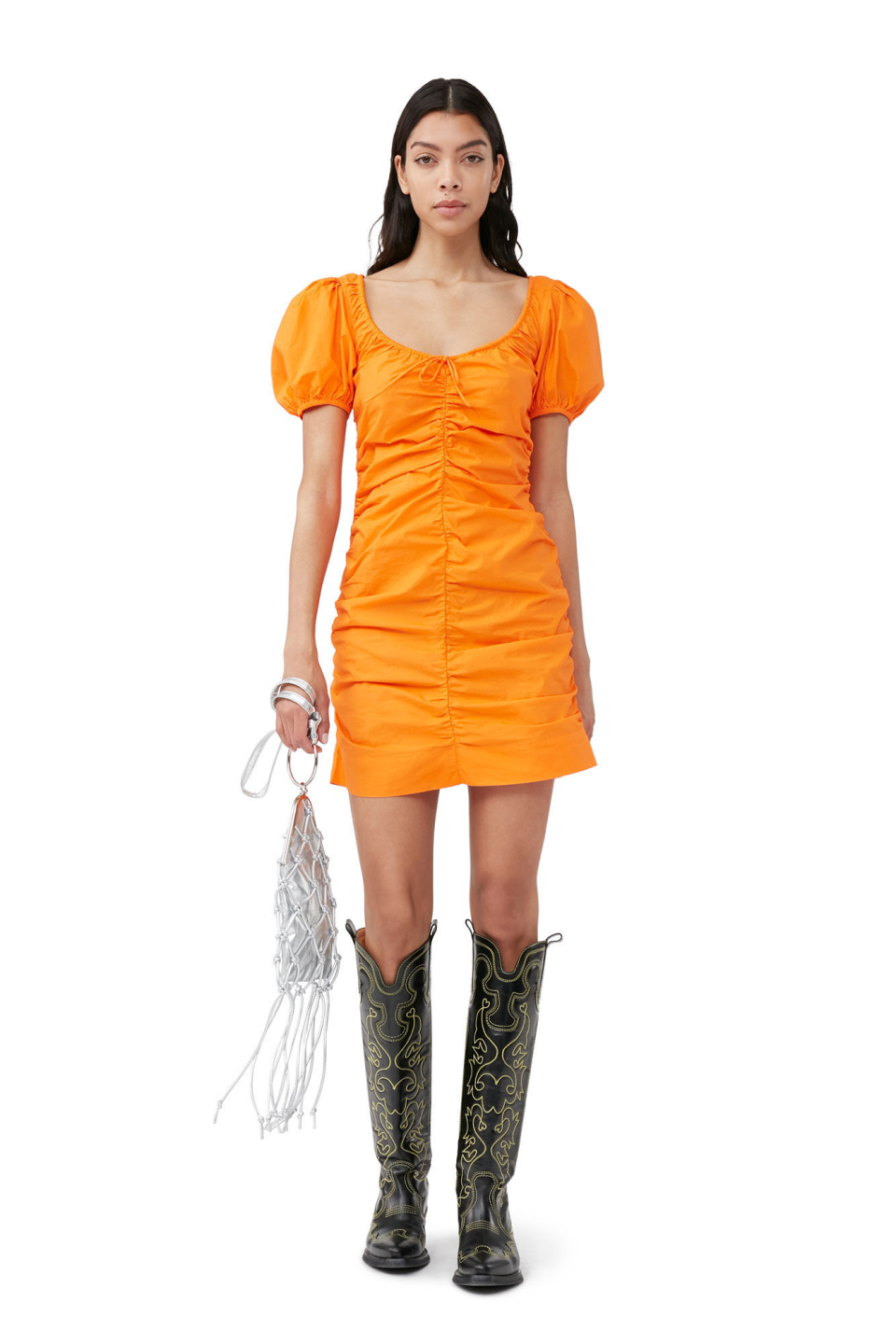
Ganni Cotton Poplin Mini Dress
9. Christy Dawn
Mandy Moore, Taylor Swift and Emily Ratajkowski are just a few stars who have worn Christy Dawn‘s bohemian dresses, blouses, jackets and more womenswear made with deadstock fabric or 100 percent organic or regenerative cotton sourced from a 10-acre regenerative farm in India. The farm-to-closet brand works directly with the artisans and farmers of the Oshadi Collective to help restore the land with healthy cotton crops, keep carbon out of the atmosphere and increase biodiversity. The result: Its Regenerative Cotton collection and Organic Cotton Collection of chic pieces dyed with plant-based or organic colors.
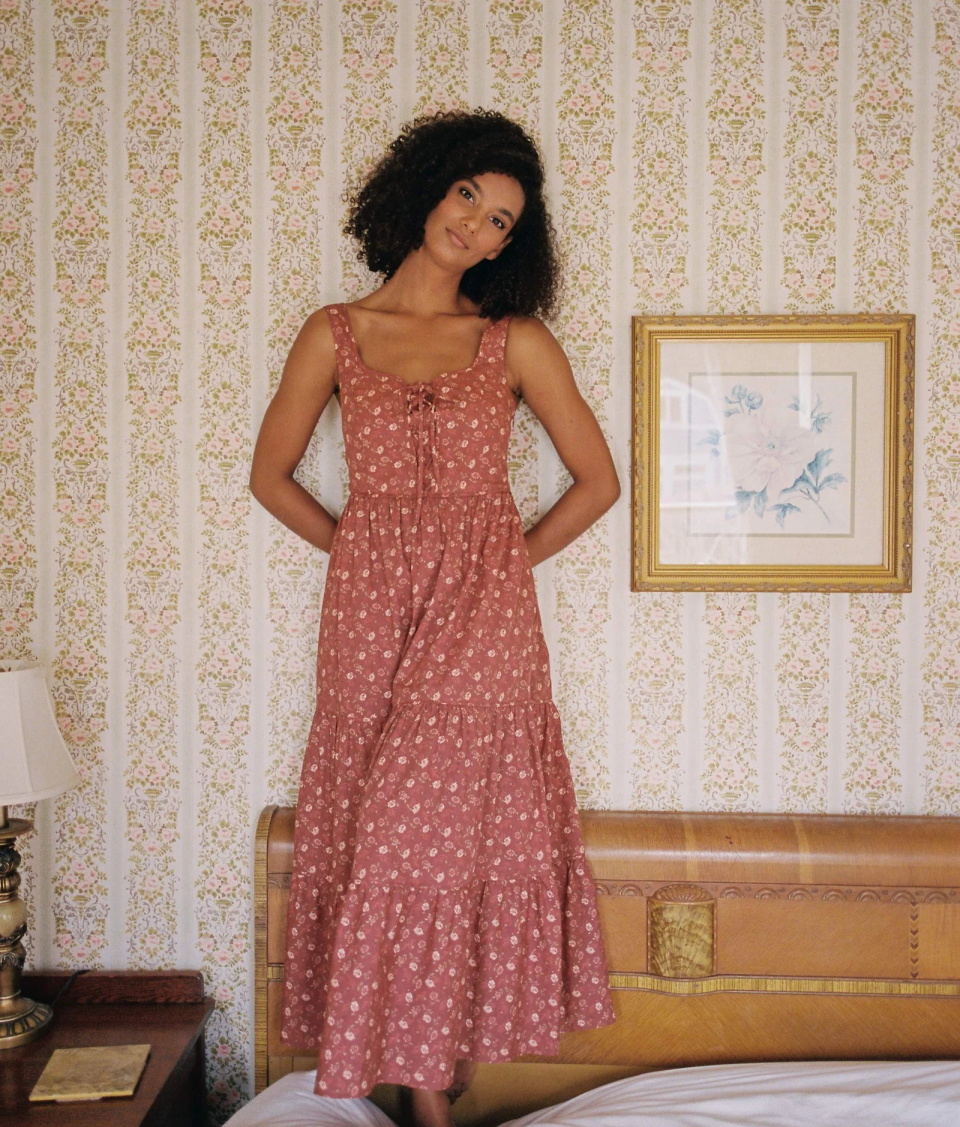
Christy Dawn Adele Dress
10. Patagonia
Since Patagonia is all about spending time in the great outdoors, it’s no surprise they are one of the best sustainable fashion brands. A member of 1% for the Planet, the Southern California-based company has an Ironclad Guarantee that prioritizes durability in its products as a way to cut down on waste, energy usage and water consumption. It’s also mindful of its carbon footprint and impact on all of the earth’s beings, and it has developed programs to ensure that its materials and goods are made responsibly without harming humans (including those who make its products) and animals.
And it keeps in mind every aspect of the supply chain, especially the production process — 87 percent of its line is made of recycled materials. That explains the innovation behind items like the insulated Down Sweater, which is made from NetPlus 100 percent postconsumer recycled nylon with an eco-friendly water-repellent coating. You can also buy used from Patagonia’s Worn Wear program encourages shoppers to extend the life of clothing, accessories and gear.
Patagonia’s Action Works program also helps support grassroots efforts that work towards solutions to the climate and antiracism.

Patagonia Women’s Down Sweater
11. Outerknown
Founded by pro surfer Kelly Slater, Outerknown is known for its oh-so-cozy organic cotton blanket shirts and lifetime-guaranteed S.E.A. Jeans made of organic cotton. The fair trade-certified company works with the Fair Labor Association and B Corp.-certified suppliers to ensure its apparel is ethically made using renewable energy, and 95 percent of its fibers are recycled or organic cotton, hemp, linen or responsible wool. Outerknown also buys and resells its pre-loved garments as part of its Outerworn program.
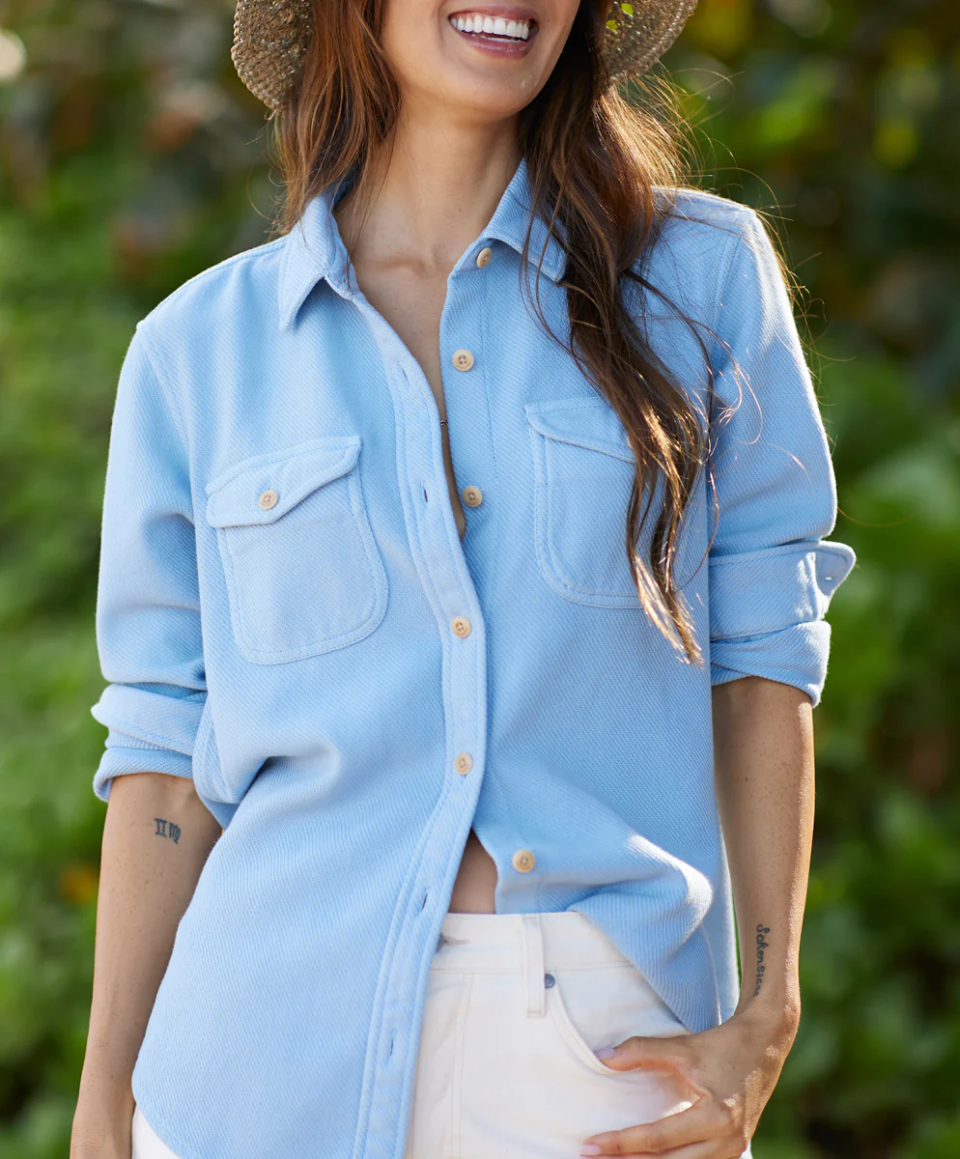
Outerknown Women’s Chroma Blanket Shirt
12. Ninety Percent
London-based label Ninety Percent splits its profits among charitable organizations and the people who help them make their sustainable clothing — and shoppers have a hand in choosing which cause they want the company to support. The brand focuses on creating long-lasting garments in a transparent and fair production process, and it uses organic cotton, low-impact natural linen and hemp (which don’t require the use of pesticides or fertilizers), Tencel, seaweed-derived SeaCel and sustainable silk-like viscose.
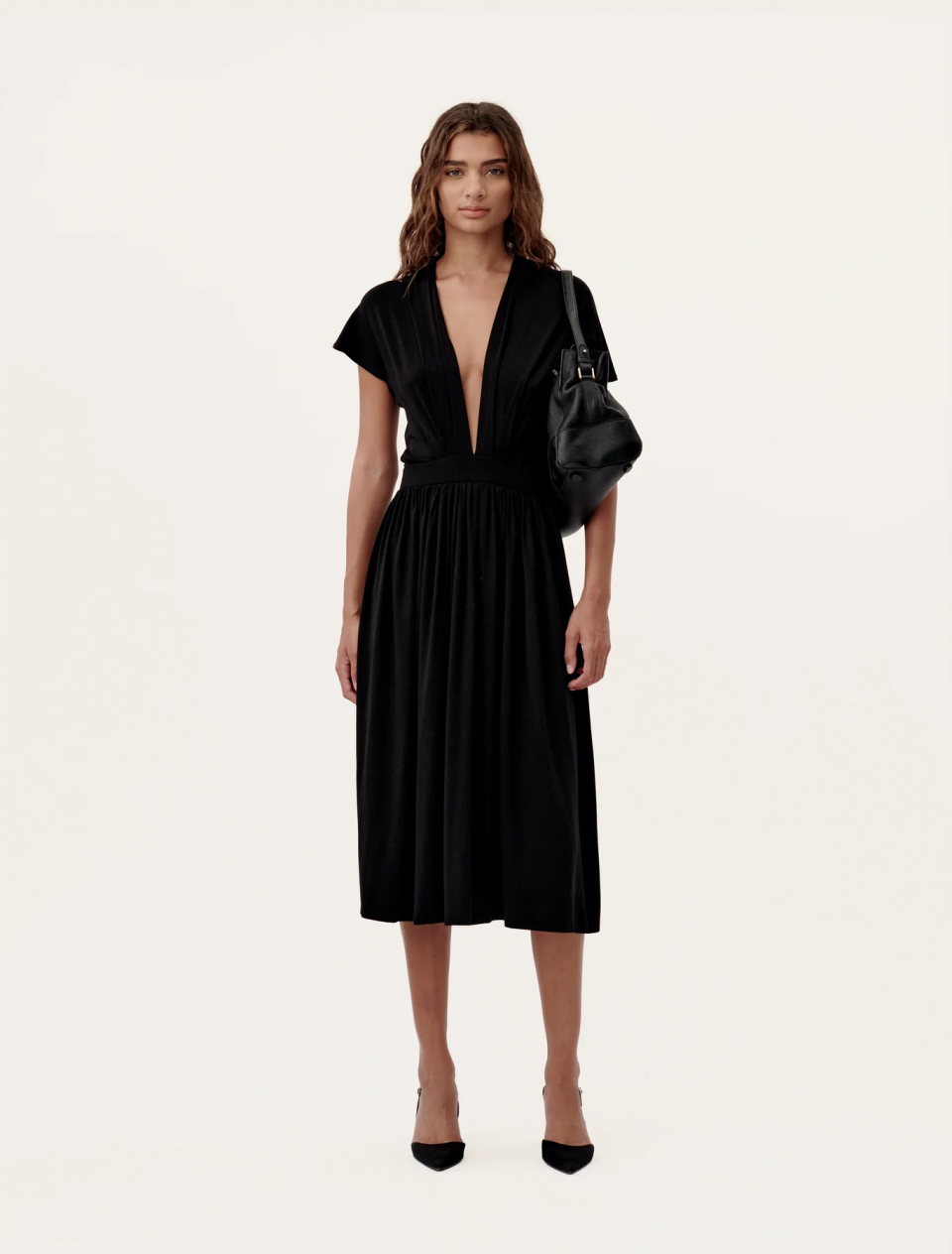
Ninety Percent Bythos Dress
13. People Tree
One of the pioneers of sustainable fashion, U.K.-based label People Tree uses organic cotton, responsibly sourced wool and Tencel Lycocell to create pieces that meet the Global Organic Textile Standard. They were the first brand to be awarded the World Fair Trade Organization label and the company’s priorities include transparency, environmentally friendly practices, gender equality, fair wages and good working conditions. They’ve collaborated with Emma Watson on fashion collections, too.
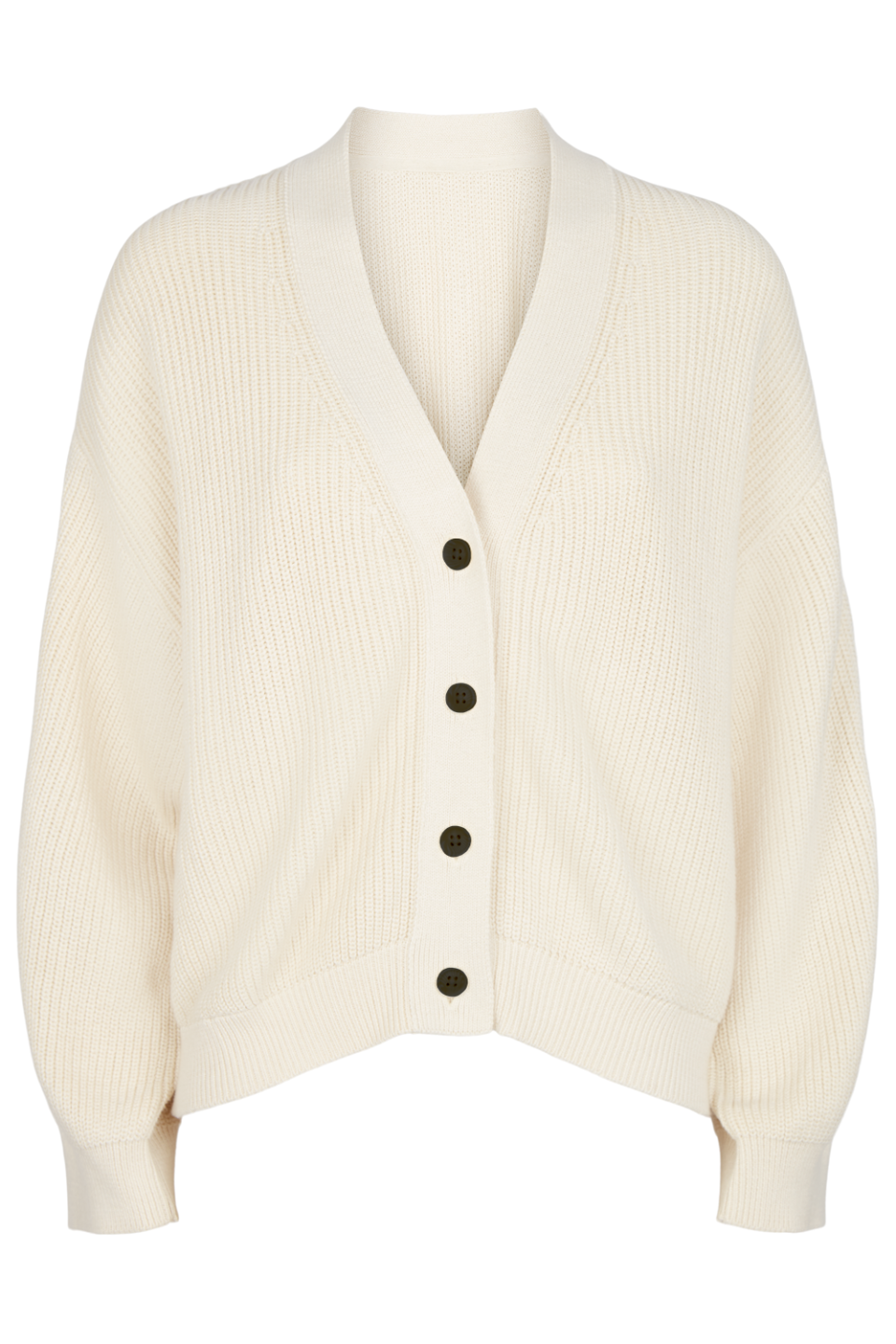
People Tree Jasmine Cardigan
14. Wolven
Inspired by the cultures of founder Kira Jade’s Hindi Indian father and Pakistani Muslim mother, Wolven uses fabrics that meet the Oeko-Tex Standard 100, Intertek’s Workplace Conditions Assessment and the Global Recycle Standard (GRS). The brand is transparent about where its products are made (in ethical factories in China and Los Angeles that use clean energy and recycled fabrics) and all of its import shipments are 100 percent carbon neutral.
On top of all of that, Wolven uses fabric made of 84 percent rPET (or recycled plastic water bottles), and its best-selling leggings are spun from the equivalent of 27 water bottles. The brand offers rewards when you recycle their plastic bags, and it partners with CleanHub and One Earth One Ocean to recover one pound of ocean-bound plastic for every order placed.
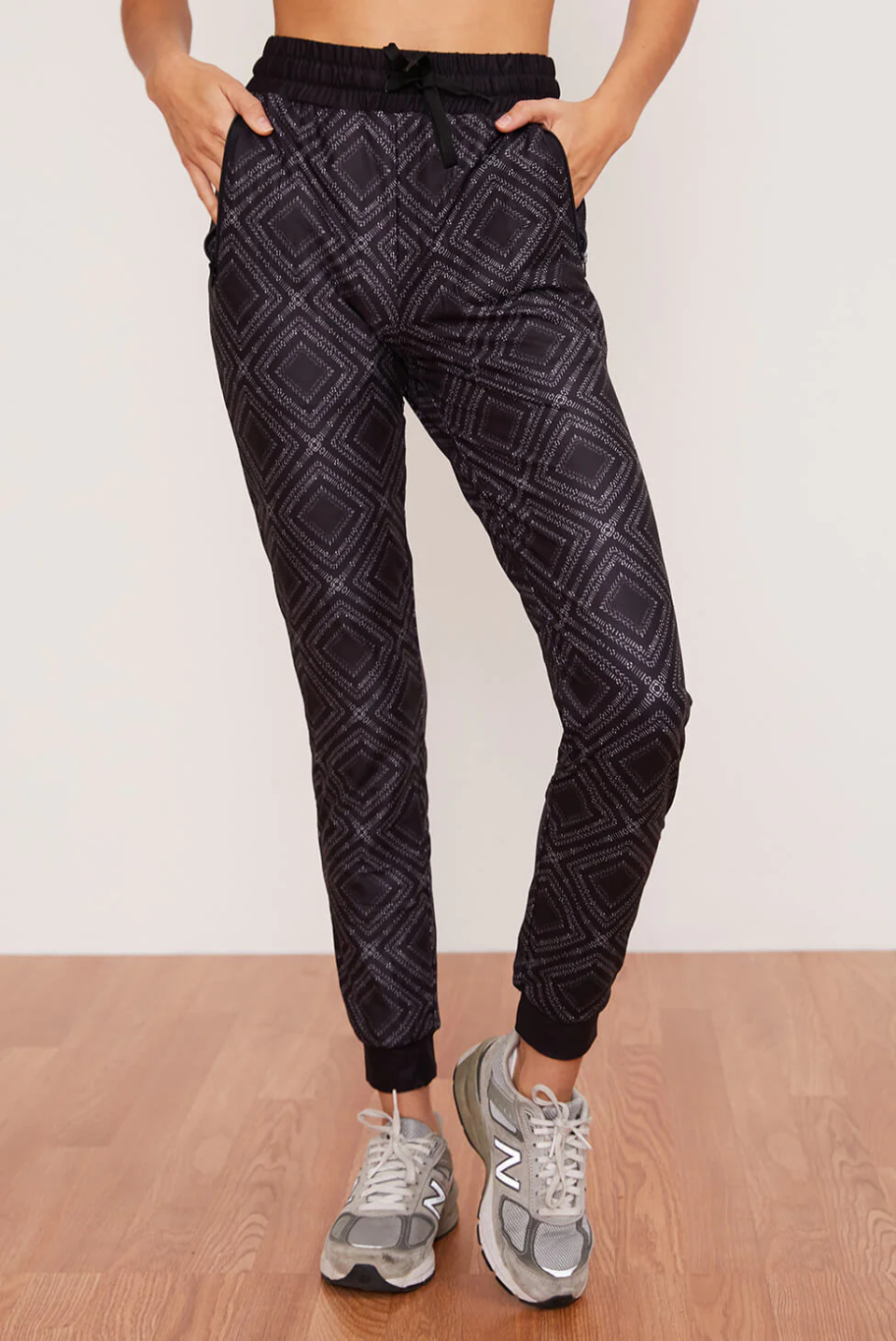
Wolven Summit Jogger
15. Boyish Jeans
Based in Los Angeles, Boyish is part of the Ellen MacArthur Foundation’s Make Fashion Circular initative with the goal of manufacturing more durable clothing that can be recycled. (Its founder, Jordan Nodarse, previously worked at Reformation.) Available at Revolve, Neiman Marcus and other retailers, the brand uses certified organic cotton, recycled cotton, Tencel Lyocell, Tencel Refibra Lyocell, deadstock fabrics and plant-based elastane and dyes, and it reduces its energy usage and carbon emissions through washing with cold water and neutral enzymes, using Ozone Wash, finishing denim with laser machines and more. The company also recycles all of its cutting waste, labels and metals, and uses recycled paper hang tags.
On the fair trade front, Boyish only works with factories that pay average wages over the minimum wage and its staff makes annual visits to its manufacturing and farming partners.
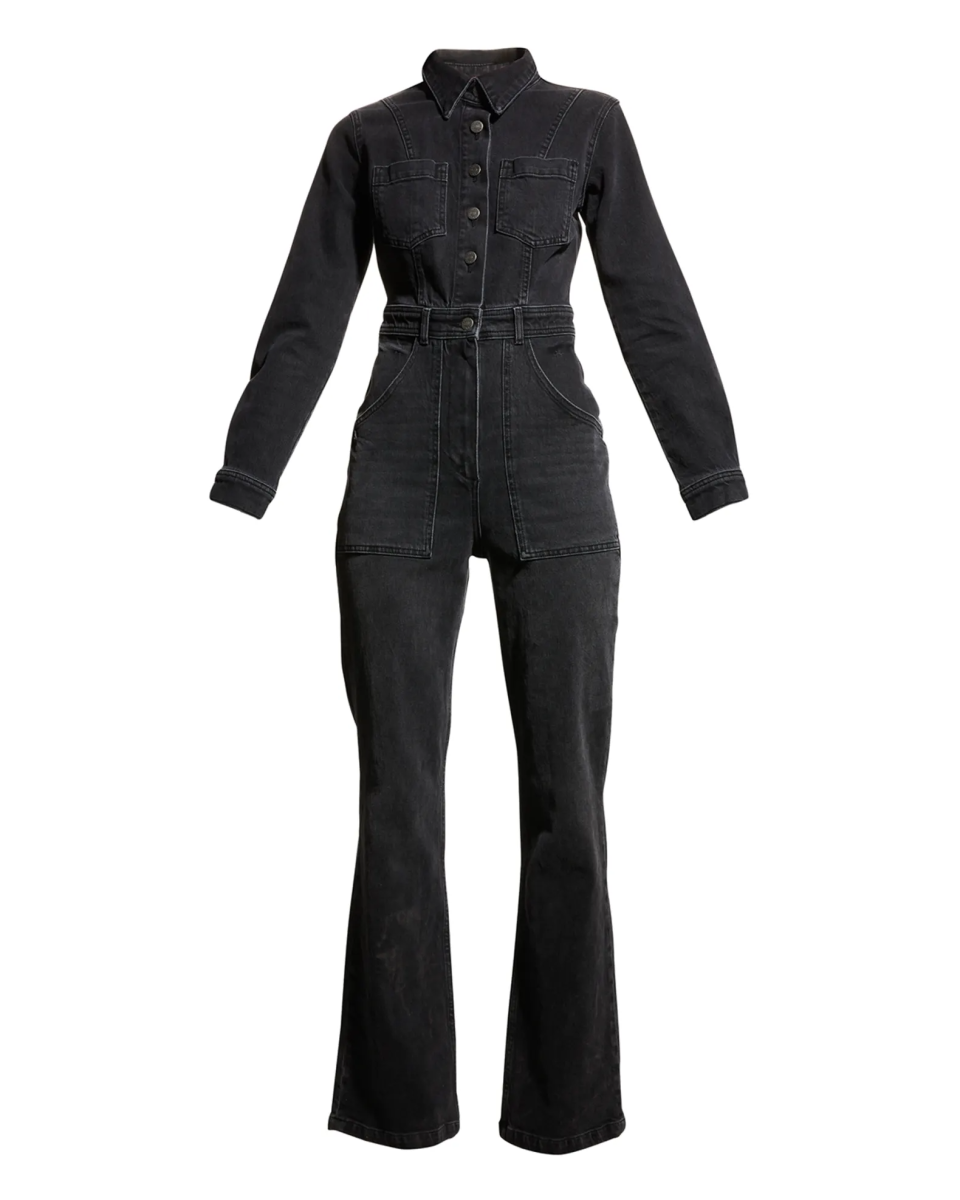
Boyish The Roman Denim Jumpsuit (reg. $228)
16. Athleta
As a Certified B Corp., Athleta is all about empowering women and helping the planet. Sixty percent of their products are made with sustainable materials, such as recycled polyester, organic cotton or Fair Trade Certified materials, and they’re working to bring that number up to 80 percent.
Items from the brand’s Down to Earth Edit include activewear, sleepwear and loungewear made of fabrics like Tencel Modal, a fiber made from European beechwood trees from sustainable forests where 99 percent of the raw material comes from certified or controlled sources.

Athleta Brooklyn Heights Wide Leg Jumpsuit
17. Cuyana
“Fewer, better things” is the motto behind Cuyana, one of the best sustainable fashion brands. The idea is buying less, but investing in pieces that will go the distance and stand the test of time. That’s why they make classic goods that won’t go out of style, naturally extending their lifetime. Everything is consciously made — they choose factories that are close to the raw materials to cut down on travel and their carbon footprint. Cuyana also offers pre-loved styles on its Revive shop and works with ThredUp to help people give their closet castoffs a second life.
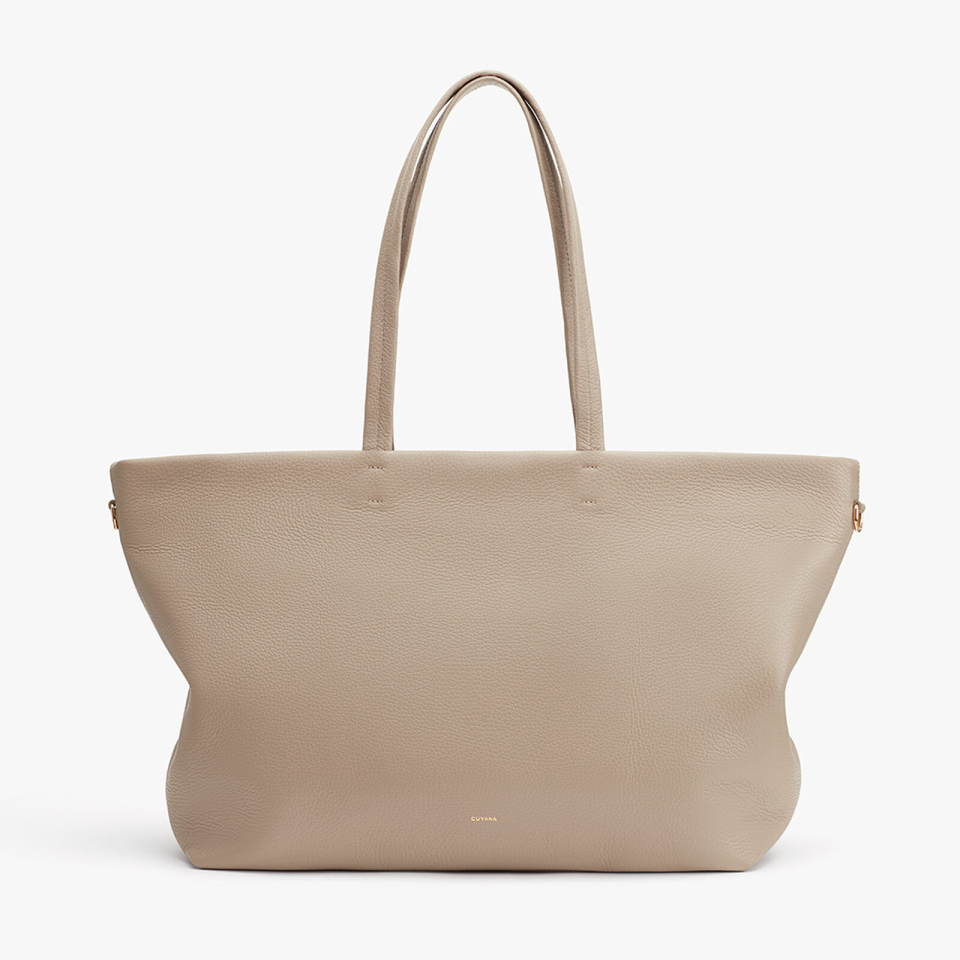
Cuyana Classic Easy Zipper Tote
18. Eileen Fisher
As one of the best sustainable fashion brands, Eileen Fisher is a true leader in the space. The brand considers every element, from fabrics and dyes to the production process and the people who make their clothes. They’re also dedicated to giving their clothes a second life. Once a customer is done with a piece, they can sell it back to Eileen Fisher. Since 2009, they’ve taken back over 1.5 million pieces to be resold or remade into new designs. Delightfully cool and comfy, the designer’s organic linen wide trouser pants are made from medium-weight fabric. The effortless silhouette can easily be dressed up or down.
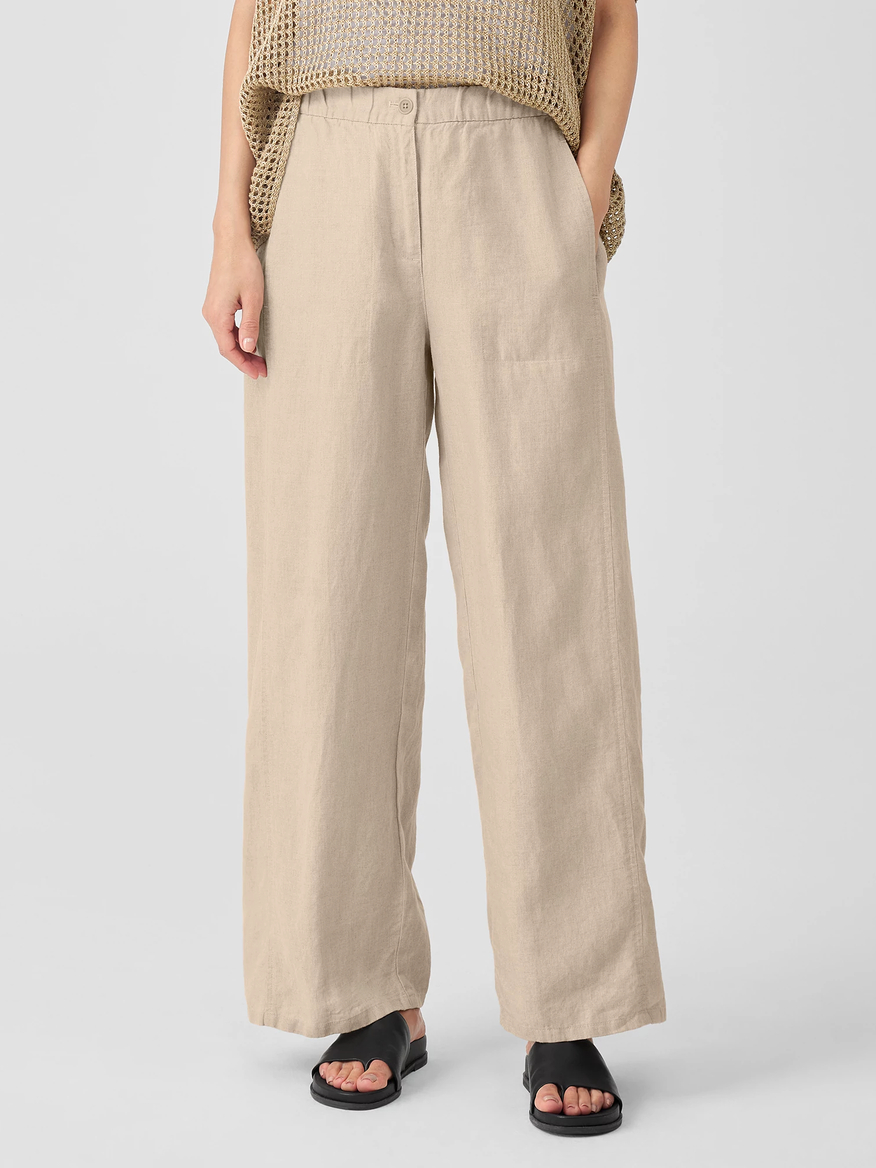
Eileen Fisher Organic Linen Wide Trouser Pant
19. Warp + Weft
Touting itself as the “world’s cleanest vertically integrated company,” Warp + Weft manufactures denim in an eco-friendly mill that meets International Social and Environmental & Quality Standards. Its factory is equipped with solar panels to power operations and an in-house water treatment plant allows the company to use less resources and recycle, reuse and return as much clean water to the earth as possible.
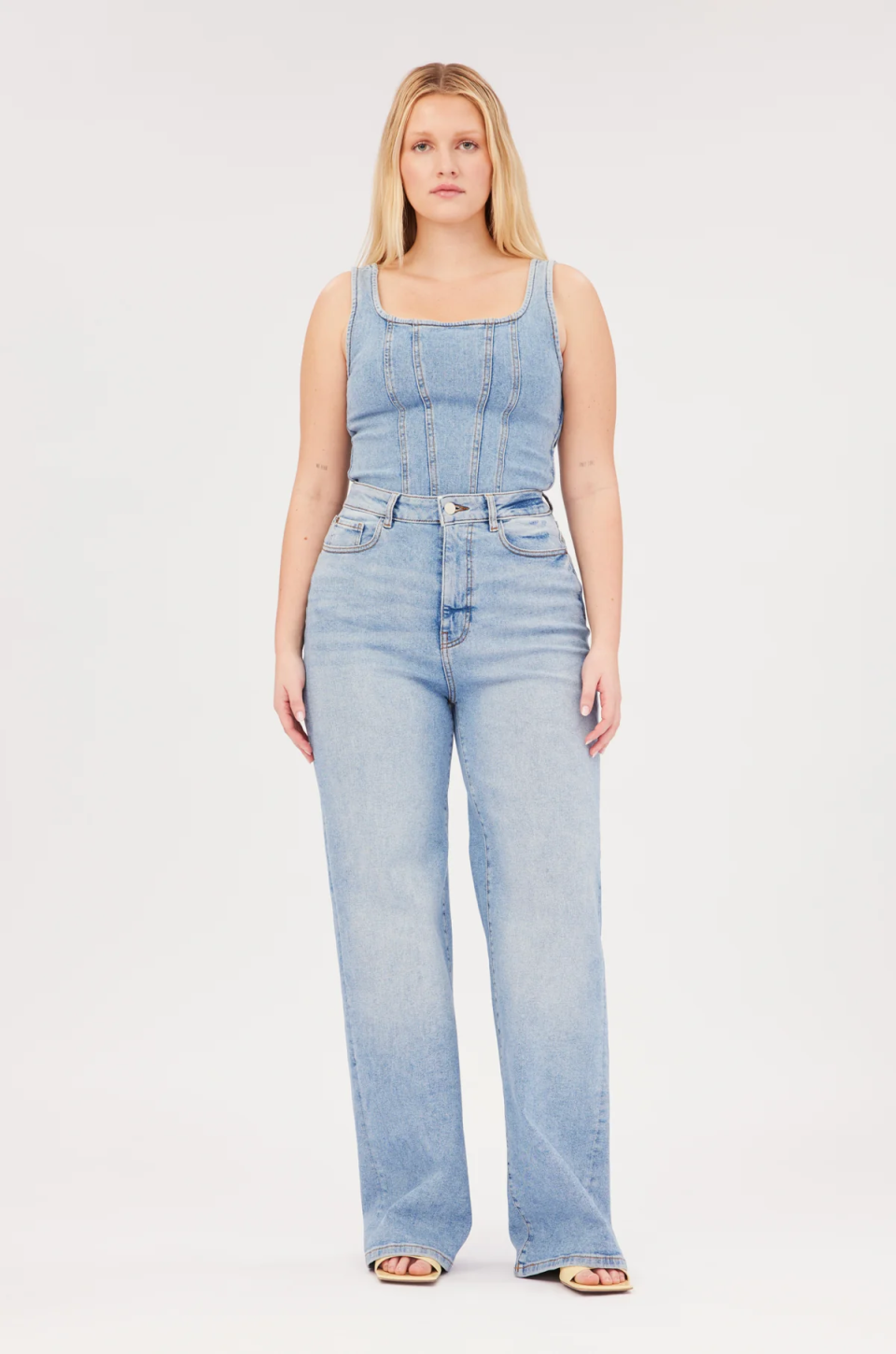
Warp + Weft Hou Relaxed Wide-Leg Bootcut Denim
20. Rent the Runway
We’ve all been guilty of buying a super trendy piece that we can only wear for one season. Rent the Runway is all about giving every piece of clothing maximum wear with its memberships that allow you to borrow garments. The company initially launched with formalwear but has since expanded to every category, including accessories and athleisure. Think of it this way: Having a membership gives you access to a truly limitless closet. In the end, it’s easier on your wallet and the planet.
They offer a variety of membership plans, including ones where you can constantly swap out pieces as often as you’d like, as well as one-time rentals. Plans are $69 for your first month (borrow up to four items) to $149 monthly (up to 16 items for your first two months; after that, pay $94 to $235 per month.
Rent the Runway Membership
Best of The Hollywood Reporter
Solve the daily Crossword

